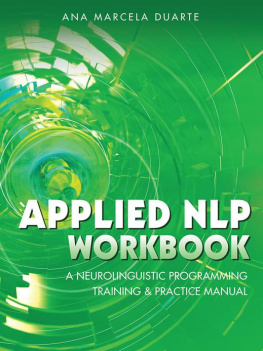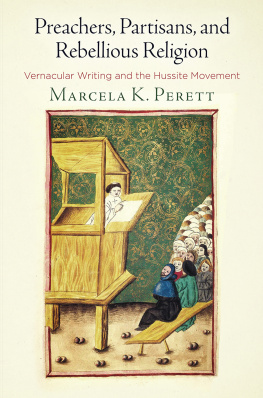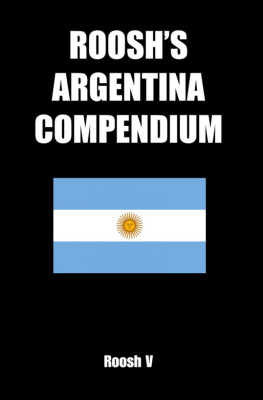
Praise for the book
This important book presents a highly readable, timely and definitive analysis of twelve years of Kirchnerism. It is essential reading for those who want to understand the dynamics behind how popular and successful left-wing governments are defeated and conservative administrations elected to replace them in Argentina and potentially other parts of Latin America.
Daniel Ozarow, Senior Lecturer at
Middlesex University and Co-Chair of the
Argentina Research Network
This is a lucid and effective analysis of the Kirchner regimes in Argentina. Covering a remarkable range but always in clear and elegant prose, this achieves the significant feat of a balanced evaluation of a period that became so contentious and polarized. We come to understand better the politics, economics and political culture of the Kirchner period, and the reasons both for its end and for many of its successes. An impressive achievement.
Sian Lazar, Department of Archaeology and
Anthropology, University of Cambridge
Published by Practical Action Publishing Ltd in association with Latin America Bureau
The Schumacher Centre,
Bourton on Dunsmore,
Rugby, Warwickshire,
CV23 9QZ, UK
www.practicalactionpublishing.org
Latin America Bureau,
Enfield House, Castle Street,
Clun, Shropshire,
SY7 8JU, UK
www.lab.org.uk
Marcela Lpez Levy
The right of the author to be identified as author of the work has been asserted under sections 77 and 78 of the Copyright Designs and Patents Act 1988.
All rights reserved. No part of this publication may be reprinted or reproduced or utilized in any form or by any electronic, mechanical, or other means, now known or hereafter invented, including photocopying and recording, or in any information storage or retrieval system, without the written permission of the publishers.
Product or corporate names may be trademarks or registered trademarks, and are used only for identification and explanation without intent to infringe.
A catalogue record for this book is available from the British Library.
A catalogue record for this book has been requested from the Library of Congress.
ISBN 9781909014053 Paperback
ISBN 9781909014084 Library Ebook
ISBN 9781909014060 Ebook
Citation: Lpez Levy, Marcela., (2017) Argentina under the Kirchners: The legacy of left populism, Rugby, UK: Practical Action Publishing,
Since 1974, Practical Action Publishing has published and disseminated books and information in support of international development work throughout the world. Practical Action Publishing is a trading name of Practical Action Publishing Ltd (Company Reg. No. 1159018), the wholly owned publishing company of Practical Action. Practical Action Publishing trades only in support of its parent charity objectives and any profits are covenanted back to Practical Action (Charity Reg. No. 247257, Group VAT Registration No. 880 9924 76).
Latin America Bureau (Research and Action) Limited is a UK registered charity (No.1113039). Since 1977 LAB has been publishing books, news, analysis and information about Latin America, reporting consistently from the perspective of the regions poor, oppressed or marginalized communities and social movements. In 2015 LAB entered into a publishing partnership with Practical Action Publishing.
The views and opinions in this publication are those of the author and do not represent those of Practical Action Publishing Ltd or its parent charity Practical Action. Reasonable efforts have been made to publish reliable data and information, but the authors and publisher cannot assume responsibility for the validity of all materials or for the consequences of their use.
Cover design by Andrew Corbett
Typeset by Allzone Digital Services Ltd.
Printed in the United Kingdom
Remember when politics was about the economy, and if you didnt agree you were stupid? Argentina in the period 2003 to 2015 proves that theres more to it than that. The country had a booming economy until 2008, and more modest expansion thereafter, but nothing like the austerity and recession seen in richer countries. And yet the 2015 elections were won on the promise of Change (Cambiemos the slogan of the winning coalition). What changes were people clamouring for?
In 2013 President Cristina Fernndez de Kirchner (CFK) made a speech about what had been achieved under her rule, and that of her husband Nstor before her. She called it the decade gained, in contrast to what had been lost to neoliberalism in the 1990s, and the lost decade of crippling debt of the 1980s. Howls of media derision met her claim of a decade won, and it was clear that a large sector of the population was not happy with the advances made. How to explain the discontent?
Who gained what? is perhaps the central political question anywhere, and in Argentina the answers are surprising. Between the years of 2003 and 2015 the poor gained work, social protection, consumer credit; the middle class gained reinforced labour rights, wage rises above inflation, cheap consumer credit and subsidised travel; exporters were able to exploit the favourable international conditions and make use of state-funded infrastructure; multinationals were able to make profits in key sectors (mining, energy, car production); the press was free to publish what it saw fit; the state gained employees and doubled the tax base; inequality fell for the first time in 20 years, contrary to trends elsewhere in the world; the number of new cars soared, motorway mileage tripled and housing was built and renovated at a tremendous pace. Schools were constructed and spending in education reached 6 per cent of GDP, with much of it going to teachers and training.
So who were the losers? Why the derision when CFK took credit for the gains of the decade? In economic terms, the pace of inflation, between 20 and 30 per cent from 2009 onwards hurt the poor most. But they were not the ones protesting loudly against the government. It was the rich with access to dollars (who benefited from inflation, which made things cheaper for them in pesos) who were most vocal in their discontent. The losers did not lose economic power. But they did lose control over the political process and feared that the economic gains of the poor and working people would make it impossible to regain power. The actions of the wealthiest were restricted in some areas: importers needed licenses; currency controls made it harder to take dollars out of the country; restricted imports meant less choice in consumer goods. Yet this doesnt seem enough to explain the visceral dislike CFK aroused.
A growing number of people felt that important, if intangible, things were lost during the rule of the Kirchners: the ability to voice dissent while remaining broadly in agreement with the aims of the government; the chance to debate and have reliable and constructive arguments around major policy decisions; the possibility of having a plurality of opinion. Even though the nation, and the national interest, were themes repeated throughout the 12 years they governed, there was little sense of national unity, of everyone being in it together. Even though the majority benefited from government actions, the Kirchner project was voted out of office by half of the population. The vote against CFKs chosen successor had more to do with weariness and alarm at the levels of antagonism in society than with unhappiness with the concrete results of the Kirchners 12 years in government.











